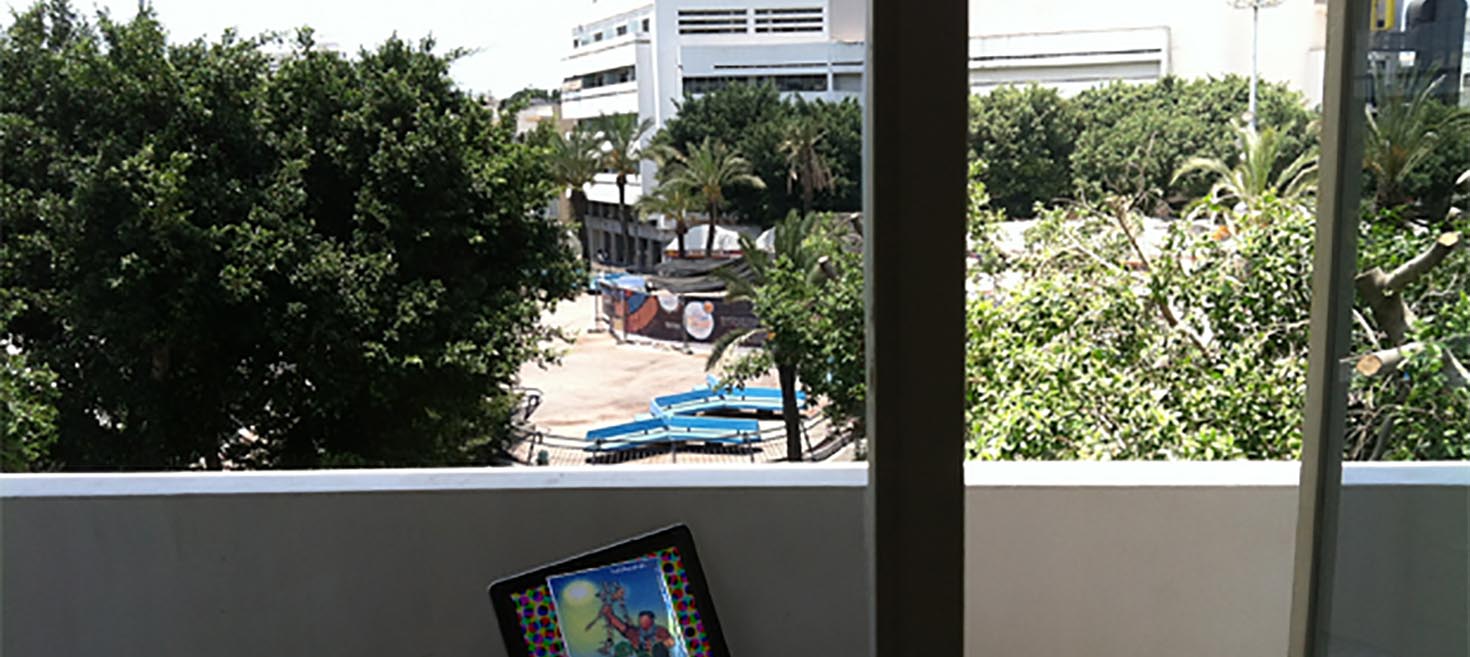
After Birthright, Bethlehem
Akiva Gotlieb, Tablet MagazineWhile there’s a lot of Israel to see on Birthright, there’s a lot more Israel left somewhere on the periphery, or completely obscured from view. Ten days, even at Birthright’s harried pace, leaves barely enough time for sights, facts and figures, and hardly a moment for political nuance. Experiencing Israel in the biblical and historical past tense all but overrides the unstable present. On-the-ground developments in the past week include the vandalizing of a mosque by Jewish settlers, the resumption of hostilities in Gaza, mass social-justice protests in Tel Aviv, and a New York Times op-ed declaring the inevitability of a third Palestinian intifada. These bulletins, all requiring context and explanation, were left understandably unaddressed by our trip leaders, and I imagine that most would surprise or confound fellow Birthrighters, many of whom knew little about Israel’s political situation. But one could argue that Birthright has a built-in solution to its obvious pedagogical limitations—at least for those who can delay a return to their desk by a week or two. It’s called The Extension.
Not every Birthrighter will feel comfortable (or financially stable) enough to extend, and many of those that do might not feel the inclination to leave Tel Aviv—and yes, full disclosure, I write this post from the balcony of a boutique hotel overlooking Dizengoff Square. But Birthright encourages this process, and makes it relatively painless to do so. For anyone convinced that Birthright’s full-speed-ahead mentality aids and abets the construction of a false consciousness, The Extension is the time to do the hard work of dismantling it. To borrow one of tour educator Yoav’s most suggestive malapropisms, Extension gives one the time and space to get “complexed.”
Given my particular idiosyncrasies and interests, this meant crashing an ABBA-enhanced wedding at the Mount Zion Hotel, searching for unexplored corners of Jerusalem’s Old City, a trip to the Kotel for Kabbalat Shabbat, breaking bread with a Haaretz editor, a few naps, and most memorably, a visit to the West Bank with the Jewish educational organization Encounter.
Traveling a few miles from our South Jerusalem hotel to Bethlehem and its environs, our small group of Tablet staffers and a few others met with a cross-section of Christian and Muslim Palestinians for a series of open, civil, and completely unrehearsed discussions about an occupation that many Israelis have permission to ignore. (Since Bethlehem is located in the West Bank’s Area A, under full civil control of the Palestinian Authority, Israelis are not allowed to visit.) We visited the offices and studios of the Ma’an Network, an independent news agency; a nonprofit fair-trade art collective run by a Christian Palestinian woman; and the home of a family who refused eviction in the face of Israel’s West Bank Barrier construction, and will now be connected to its village by a tunnel.
Some of our conversations were maddening; a few were poignant. From the hilltop of Al-Walaje Village, we saw Jerusalem’s Teddy football Stadium in the near distance, and our guide, Marwan, remembered the excitement of his only visit, 17 years before. Another interlocutor, a nonviolence educator with the makings of a transformative politician, dispirited us by claiming that any entry into politics would mean forfeiting credibility with his community. Palestinian political agency was uniformly minimized. “We have the righteous case,” he lamented, “but a bad lawyer and a rigged court.” Instead of pontificating amongst ourselves about the possibility of a third intifada or what the “right of return” might mean in practical terms, we got to ask Palestinians directly. We got different answers, zero conclusions.
At the end of the afternoon, our group reentered Jerusalem by walking through Checkpoint 300, an experience made no less disquieting by the fact that, with U.S. passports in hand, we sped along with ease. I know that Bethlehem—where our group had no reason to feel unsafe—is not Hebron, and it is not Gaza. But it also isn’t Tel Aviv. Everything I took in underscores the moral imperative to challenge the creeping “normalization” of an unequivocally abnormal situation.
The eight hours of Encounter deserve some decompression, some further research, and at least another week of reflection, but I know I will come to see this short and unsensational detour as a crucial point on my Birthright continuum. Toggling between the “two Israels,” with the suspicion that I was missing out on many more, is the only way I can plan to return home with a matured perspective. The way Birthright feels about Israel—and they’re right, of course—is the way I now feel about Bethlehem: Every Jew should see this.
PLEASE NOTE: The views expressed in this section of the website are not necessarily those of Encounter as an organization. We support the chorus of voices of the Jewish community in engagement with the complexities of the Israeli-Palestinian conflict, so long as they are consistent with our core values.